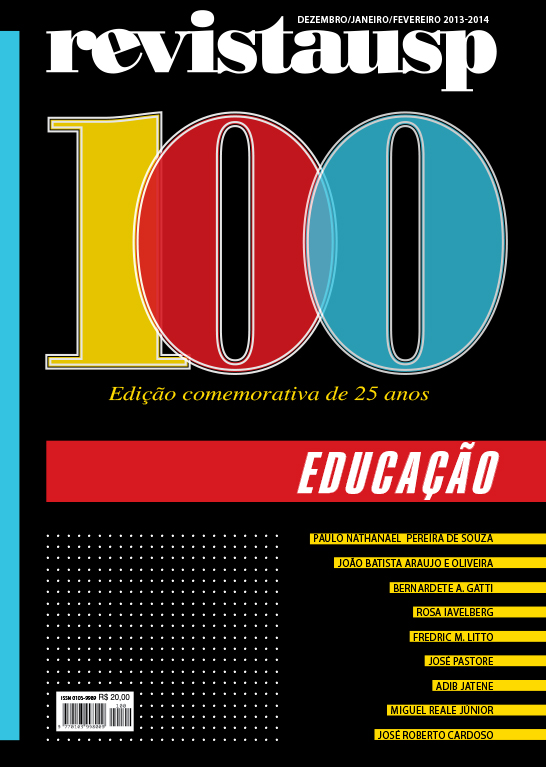As interfaces da EAD na educação brasileira
DOI:
https://doi.org/10.11606/issn.2316-9036.v0i100p57-66Keywords:
distance education, distance learning, open learning, independent learning, resistance to new technologies, education in BrazilAbstract
Brazil’s ambitions of boosting its importance on the international scene run the risk of being rendered unfeasible due to its workforce, whose qualification level and numbers are below global standards. Distance learning had its implementation in higher education in Brazil delayed by the conservativism of the academic community, generations of bureaucrats who were not education-oriented, and the National Congress. The criticism leveled in Brazil against distance learning is the result of a lack of knowledge regarding the achievements it has attained abroad, and because of myths which prevent it from being fully used so as to enable a more democratic access to advanced studies and their accreditation. New digital tools, such as Learning Objects, Open Educational Resources, and Massive Open Online Courses, certainly provide the path towards making the teaching/learning process more dynamic in general, and making independent learning possible.
Downloads
References
CENSO EAD.BR: Relatório Analítico da Aprendizagem a Distância no Brasil. São Paulo, Pearson/Abed, 2011.
JONES, Christine Kenyon. The People’s University. 150 Years of the University of London and its External Students. London, University of London, 2008.
LITTO, Fredric M. “A Nova Ecologia do Conhecimento: Conteúdo Aberto, Aprendizagem e Desenvolvimento”, in Inclusão Social. Brasília, v. 1, n. 2, abr.-set./2006, pp. 73-8. Disponível em: http://revista.ibict.br/inclusao/index.php/inclusao/article/view/32/52. Acessado em: 15 de agosto de 2013.
LITTO, F. M. & FORMIGA, M. (orgs.). Educação a Distância – O Estado da Arte. São Paulo, Pearson, 2011.
LORDELLO, Carlos. “Online Pode Ser Melhor que Curso Presencial”, in O Estado de S. Paulo,10 de abril de 2013, p. A14 (entrevista com Anant Agarwal, presidente da edX, projeto de Harvard e MIT).
MERLOT-Journal of Online Learning and Teaching, vol. 9, no 2 (junho 2013). Número especial dedicado aos MOOCs. Disponível em: http://jolt.merlot.org/currentissue.html. Acessado em: 15 de agosto de 2013.
“REFERATÓRIO de Recursos Educacionais em Língua Portuguesa”. Disponível em: http://www.abed.org.br/site/pt/midiateca/referatorio/. Acessado em: 8 de julho de 2013.
U.S. Department of Education. Evaluation of Evidence-based Practices in Online Learning – a Meta-Analysis and Review of Online Learning Studies. Washington, D.C., 2009. Conclui que aprendizagem on-line é mais eficaz que presencial. Disponível em: http://www2.ed.gov/rschstat/eval/tech/evidence-based-practices/finalreport. pdf. Acessado em: 15
de agosto de 2013.
YATES, Ronald W.; BEAUDRIE, Brian. “The Impact of Online Assessment on Grades in Community College Distance Education Mathematics Courses”, in American Journal of Distance Education, vol. 23, no 2 (2009), pp. 62-9.
Downloads
Published
Issue
Section
License
Copyright (c) 2023 Revista USP

This work is licensed under a Creative Commons Attribution-NonCommercial-ShareAlike 4.0 International License.
|
Pertence à revista. Uma vez publicado o artigo, os direitos passam a ser da revista, sendo proibida a reprodução e a inclusão de trechos sem a permissão do editor. |


